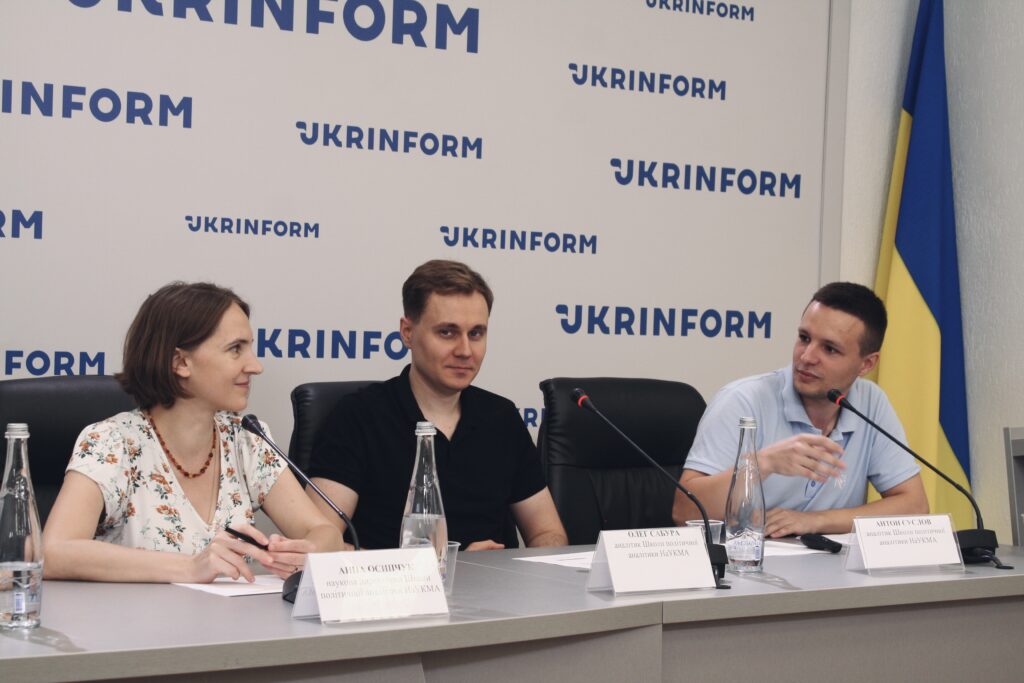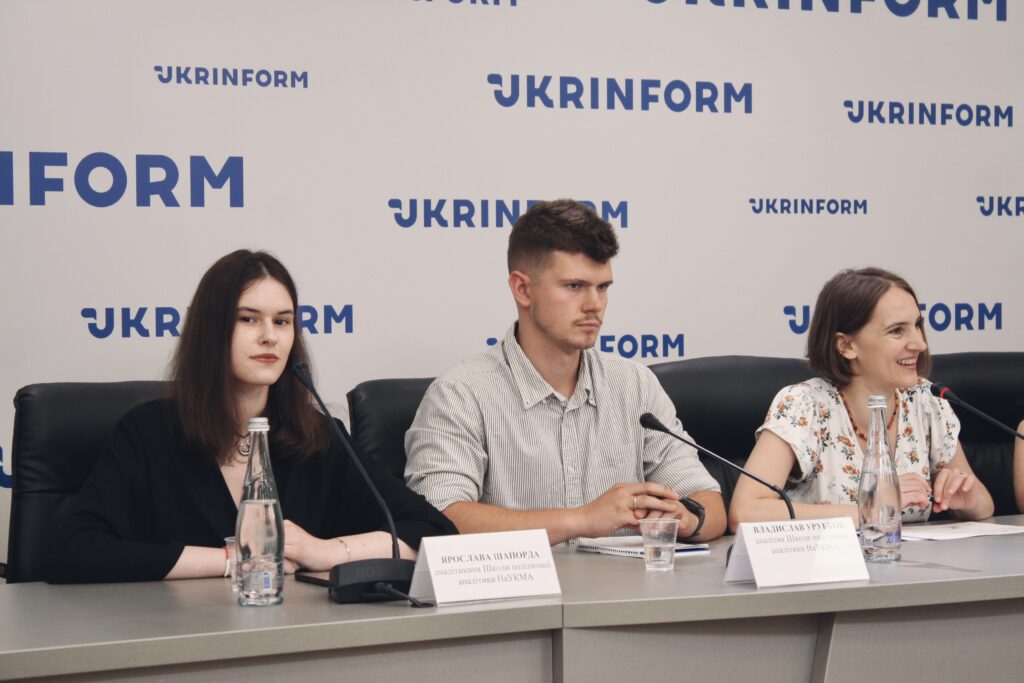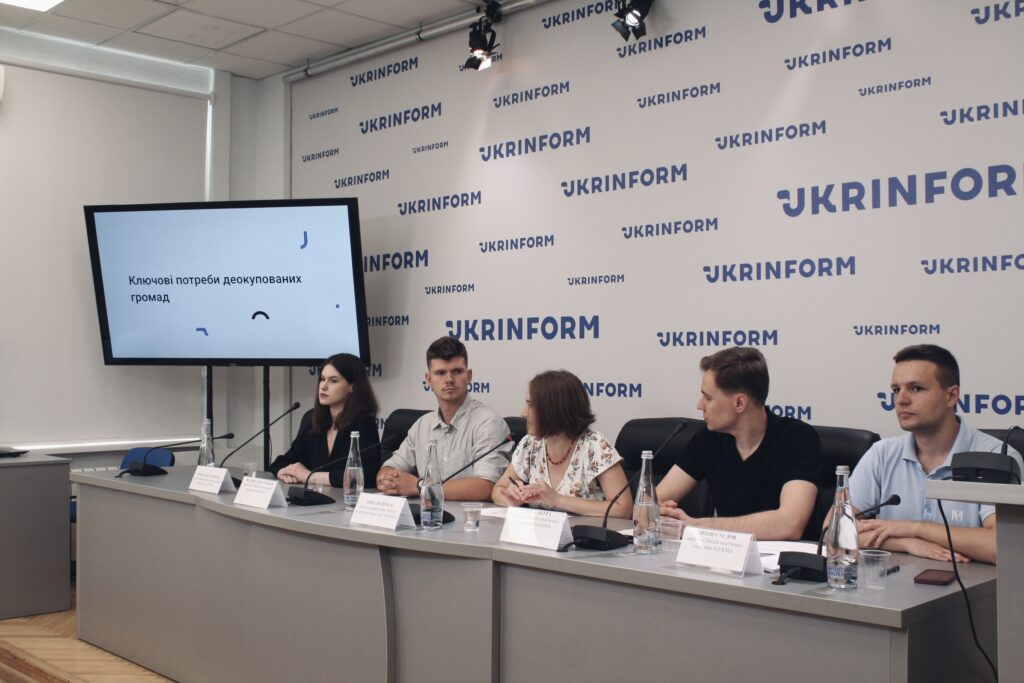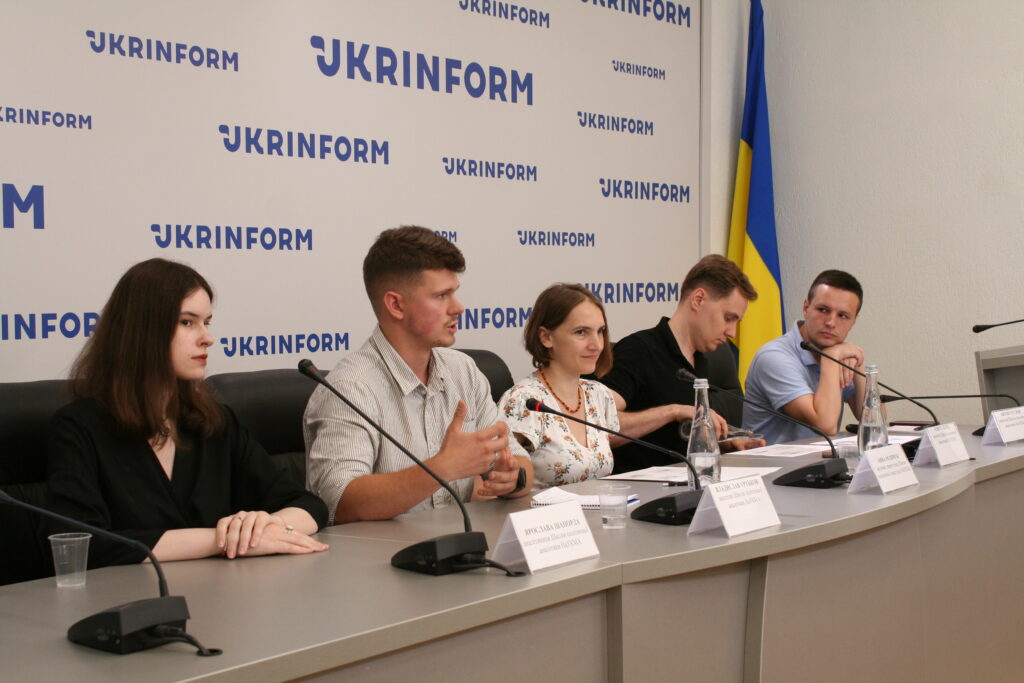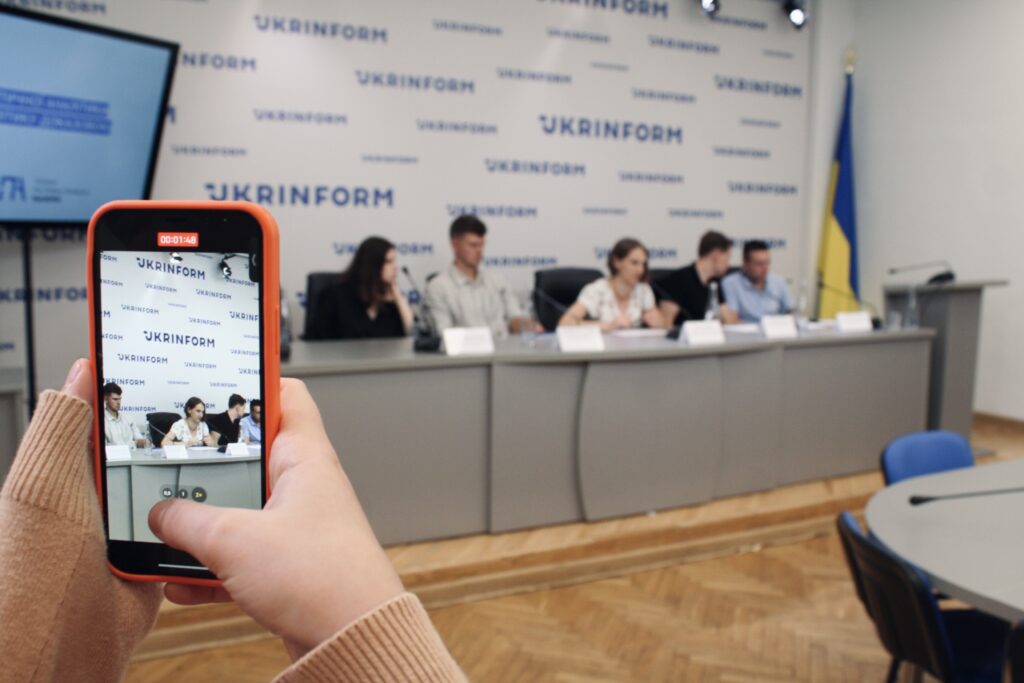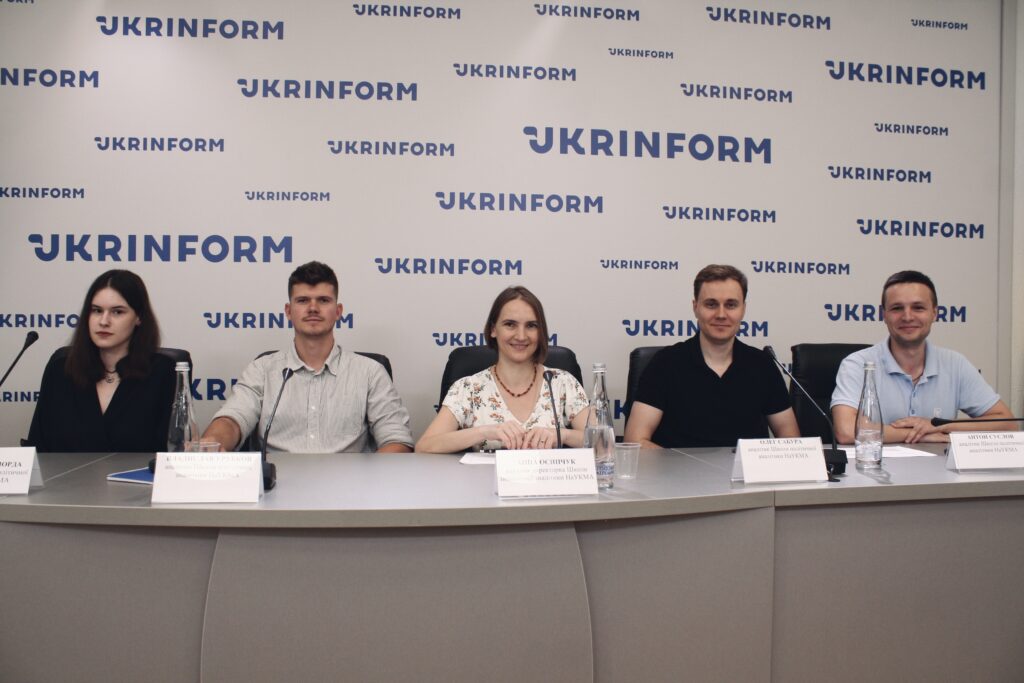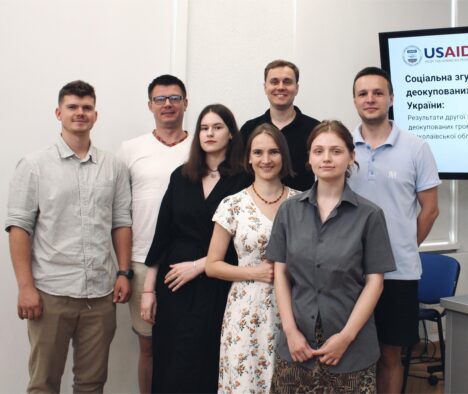Understanding the needs of the residents of the de-occupied communities is crucial for their effective return to Ukraine’s cultural, informational and legal domains. To track the needs of the residents of the liberated territories, the School for Policy Analysis at the National University of Kyiv-Mohyla Academy is conducting systematic field work in the regions.
The School for Policy Analysis presented its report “Social Cohesion in De-Occupied Communities of the East and South of Ukraine”. The report is based on fifteen focus group discussions conducted in April 2024 in the de-occupied communities of Kherson, Kharkiv and Mykolaiv regions.
The presentation included the following issues:
1. Key needs of the de-occupied communities’ residents
Security and restoration of critical infrastructure continue to be among the key needs of the residents of the de-occupied communities. “The security is one of the reasons why people do not return to the de-occupied territories,” added Yaroslava Shaporda, Analyst at the SfPA. Additionally, educational infrastructure was mentioned as important since its restoration makes it possible for people with children to find a full-time job. It is also noteworthy that the participants directly mentioned the need for psychological assistance both for adults and children.
2. Assessment of support by public authorities
For the majority of participants, local authorities are sufficiently responsive to their requests (except in the city of Kherson). Authorities’ efforts to restore critical infrastructure and maintain utility companies’ work are estimated positively. Director for Research of the SfPA, Anna Osypchuk, stated: “Participants positively assessed the prompt restoration of infrastructure: educational (although people also talk about its lack), medical (people also talk about the lack of specialists, especially specialised ones), and housing.” Participants complained about redundant bureaucracy and the fact that after de-occupation not all services that were available before in the communities had been re-launched.
3. Humanitarian aid
The humanitarian aid is provided by authorities, local and international organisations and, in some cases – local entrepreneurs. Participants are grateful for this support but also mentioned some challenges connected with aid that may cause tensions within the communities. The process of distribution is questioned both in terms of what products are distributed and to whom. According to participants, the aid programs should target wider vulnerable groups due to the lack of jobs in communities as well as be more flexible and offer food vouchers instead of particular products.
4. Demand for justice
Foremost, participants insisted on the individual approach and case-by-case basis in lustration or collaboration cases.
Collaboration has been defined by participants as helping and assisting occupants in a broad sense. The attitude toward those defined as collaborators is negative, though participants exclude from them those who worked to maintain critical infrastructure in communities like electricians, etc. Participants insisted that it is important to see justice done to those who collaborated and remarked that they do not see enough cases of that in the media or in their communities. Such penalties as confiscation of property and deportation were mentioned as possible alternatives to imprisonment. Still, people would rather leave the matter of restoring justice to the state authorities and in general trust the Ukrainian law in this regard. Participants said that residents should not take justice into their own hands.
“On the other hand, there are factors that increase the likelihood of mob justice in de-occupied communities. One of them is the inactivity of law enforcement agencies… “ remarked Vladyslav Urubkov, Analyst at the SfPA.
Regarding lustration for those who worked in the public sector during the occupation, participants differentiate between categories. Medical doctors and staff as well as workers of critical infrastructure should not be lustrated unless talking about top management. Workers of occupational administrations etc (“civil servants”/”chynovnyky”) are to be lustrated. Also important is the question of swiftness of lustration. Regarding teachers, the positions were divided. Still, everyone agreed that school top management should be lustrated.
Regarding those citizens of Ukraine who were mobilised to the Russian army from temporarily occupied territories, again an individual approach has been suggested. Negative attitudes marked them as collaborators and traitors and were also based on negative experience during occupation or perceived such a step as voluntary due to ideology or material gain. Neutral attitudes assumed the mobilisation as forced.
5. Attitudes toward residents of TOT-2014
Foremost, participants emphasised the need to distinguish between people, not to generalise or treat all residents of the territories occupied since 2014 as one, and to take into account individual choices and actions. There are three factors that influence the participants’ attitudes towards TOT residents: residents’ political views, participants’ personal experience during the occupation and their personal contacts on TOT. The participants’ personal experience during the occupation plays as a double-edged sword: those who faced TOT residents serving in the Russian army have negative attitudes, while for others, living through similar conditions and events raised empathy towards those under occupation since 2014.
Regarding the restrictions of voting rights, the opinions of the focus group participants were divided. Some of them referred to the Constitution, which prohibits restrictions of voting rights. Others claimed that such restrictions should be imposed on those who collaborated during the occupation.
6. The effectiveness of Russian propaganda
Participants assessed that Russian propaganda’s effect on the Kherson and Kharkiv regions is different: weak in the Kherson region and still quite strong in the Kharkiv region.
“People also noted that they were in information isolation: communication was jammed or electricity was cut off and people could not access the Internet and television. … The prevailing opinion was that those who really wanted to could get access to information. At the same time, the occupiers distributed leaflets, newspapers, and various printed materials, but people were sceptical about them,” emphasised Oleh Sabura, Senior Analyst at the SfPA.
More details in the recording of the presentation of the report “Social Cohesion in De-occupied Communities of Eastern and Southern Ukraine”.
You can view the presentation from the event by clicking here.
For more information, please contact Anton Suslov at anton.suslov@ukma.edu.ua.
The results were presented by:
Anna Osypchuk – Director for Research, School for Policy Analysis NaUKMA
Anton Suslov – Senior Analyst, School for Policy Analysis NaUKMA
Oleh Sabura – Senior Analyst, School for Policy Analysis NaUKMA
Yaroslava Shaporda – Analyst, School for Policy Analysis NaUKMA
Vladyslav Urubkov – Analyst, School for Policy Analysis NaUKMA
This research is being implemented by the School of Political Analysis at NaUKMA within the framework of the “Engage!” Program, funded by the United States Agency for International Development (USAID) and implemented by Pact in Ukraine. The content of this event is solely the responsibility of Pact and its partners, and does not necessarily reflect the views of USAID or the U.S. government.
